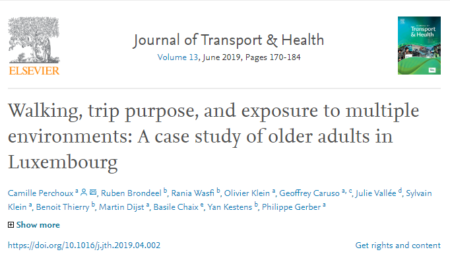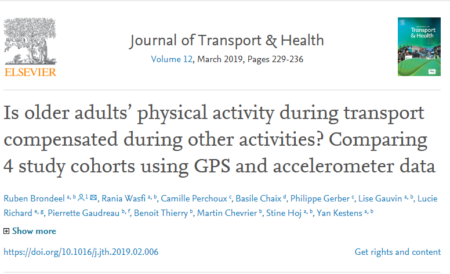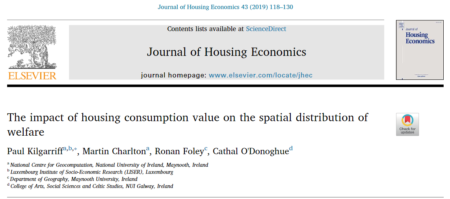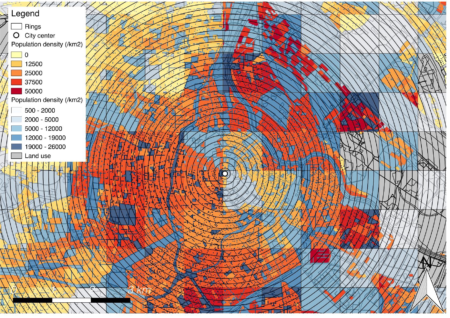Check out our new CURHA paper on neighborhood effect on walking! We used an activity space approach to explore the relationships between environmental conditions around and between activity locations, trip purpose and walking. Specific attention was dedicated to the role played by “trip purpose” on the i) the odds of walking, and ii) as a
GISRUK 2019 – Notes
This is just a short blog post on my recent experience and observations from my first GISRUK conference in Newcastle, UK. The conference started with four workshops over the first two days along with sixty presentations and ~200 attendees over the course of the week. The slides from my presentation “Change in Artificial Land Use
Is older adults’ physical activity during transport compensated during other activities?
Check out our new CURHA paper, led by Dr. Ruben Brondeel, and comparing 4 study cohorts using GPS and accelerometers ! https://www.sciencedirect.com/science/article/pii/S2214140518305048 Abstract Introduction Promoting active transport offers the potential to increase population physical activity levels. Compensation theories state that above-average physical activity in one activity is compensated in later activities; a mechanism that results
ECTQG 2019 – EXTENDED Call for Abstracts > 30/04/2019
We are very pleased to open EXTEND the Call for Abstracts for the European Colloquium on Theoretical and Quantitative Geography in Mondorf-Les-Bains, Luxembourg (5-9 Sept 2019).The call is open until the 15th 30th of April 2019. Submissions are welcome for any topic of interest in quantitative and theoretical geography. In addition, 10 specifically organised sessions have been accepted, which we encourage you to consider
For policy-relevant measures, it is important that policymakers are able to foresee how quality improvements influence the price of land, over time and space.
Abstract Urban development projects have many effects on society, such as improving mobility, health, education, and sustainability. For policy-relevant measures, it is important that policymakers are able to foresee how quality improvements influence the price of land. Therefore, our objective is to collect a set of variables able to account for the effects of a multitude of land
Dis-equalising impact of Housing
https://www.sciencedirect.com/science/article/pii/S1051137718301293 The measure of a household’s income should include not only monetary components such as job salary but also non-monetary components and in-kind benefits, such as imputed rent. Imputed rent is the rent an owner can expect to receive were the house on the rental market. Being an owner-occupier does not provide a rental income
Now there is a formal link between standard intra-urban theory of residential choice and population scaling as of urban systems theory! A must read in Geographical Analysis
Justin Delloye, Rémi Lemoy (now at UMR Idées, Rouen) and Geoffrey Caruso just published an article where they reconcile Alonso and the scaling literature. This is done through an augmented micro-economic model where scaling exponents are explicit and the scaling with population of the profile of residential land is exogenously given to better suit empirical
The land transformation model-cluster framework: Applying k-means and the Spark computing environment for large scale land change analytics
Omrani H., has a new article published in the EMS journal. The paper explores the challenges of simulating land change across large regions and spans of time. The new mode, called LTM-Cluster, is a scalable modeling framework aimed to benefit research involving large datasets. The paper uses the Spark environment to reduce the burden of high computational
Towards place-based exploration of Instagram: Using co-design to develop an interdisciplinary geovisualization prototype
Catherine Jones has a new article published in the Open Access Journal of Spatial Information Science. The paper explores the co-design process of adapting a digital humanities tool for the geovisualisation and exploration of place-based information encoded in Instagram posts. The paper uses data associated to the #Via Francigena cultural route. It reflects upon the process of data
Launch of SCALE-IT-UP Project
Scaling of the Environmental Impacts of Transport and Urban Patterns The SCALE-IT-UP project, funded by the Luxembourg National Research Fund (FNR) under the CORE scheme, will investigate the role of city size, measured in terms of population and artificial land use, on a set of environmental and economic attributes. Re-scaling cities to control for variation in









